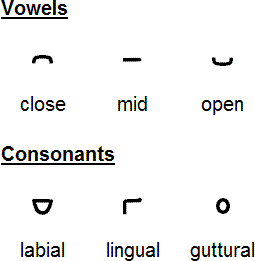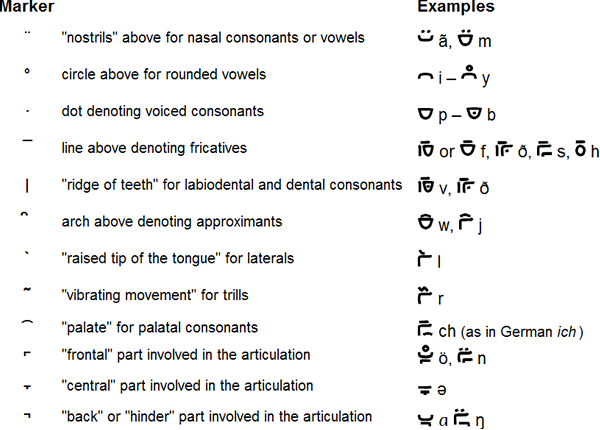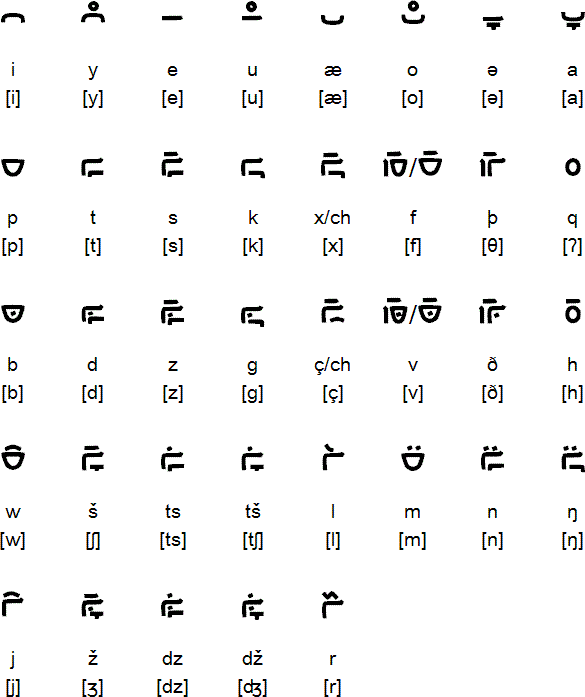Keburi script was devised by Latvian biologist and amateur-linguist Jurģis Šuba in 2016. The word ķeburi in Latvian means ‘scribbles’ or ‘srawls’. The script was inspired by the Uniskript project (which itself was inspired by Korean Hangeul script), in which shapes of characters are related to articulatory organs and reflect the pronunciation of the sounds they refer to. Such "pictographic" scripts may be favoured by people who may experience difficulties in relating the phonemes with meaningless shapes of traditional (e.g. Latin) letters. Alternatively Keburi script may serve as a tool for teaching phonetics and reading to children not yet familiar with letters.
The basic shapes are simplified illustrations of the main articulation patterns or organs (e.g. lips, tongue, throat, relative position of the tongue). Long vowels and consonants may be written as elongated shapes.

The markers, denoting specific articulation patterns, are added to the basic shapes and therefore serve as links from phonemes to graphemes.

Additional basic shapes and markers, following the "sound-pictographic" principle, may be introduced to form new symbols as required by users’ language.


All human beings are born free and equal in dignity and rights. They
are endowed with reason and conscience and should act towards one another
in a spirit of brotherhood.
(Article 1 of the Universal Declaration of Human Rights)
Download a font for this script
Constructed scripts for: Ainu | Arabic | Chinese languages | Dutch | English | Hawaiian | Hungarian | Japanese | Korean | Lingala | Malay & Indonesian | Persian | Tagalog / Filipino | Russian | Sanskrit | Spanish | Taino | Turkish | Vietnamese | Welsh | Other natural languages | Colour-based scripts | Tactile scripts | Phonetic/universal scripts | Constructed scripts for constructed languages | Adaptations of existing alphabets | Fictional alphabets | Magical alphabets | A-Z index | How to submit a constructed script
[top]
You can support this site by Buying Me A Coffee, and if you like what you see on this page, you can use the buttons below to share it with people you know.

If you like this site and find it useful, you can support it by making a donation via PayPal or Patreon, or by contributing in other ways. Omniglot is how I make my living.
Note: all links on this site to Amazon.com, Amazon.co.uk
and Amazon.fr
are affiliate links. This means I earn a commission if you click on any of them and buy something. So by clicking on these links you can help to support this site.
[top]